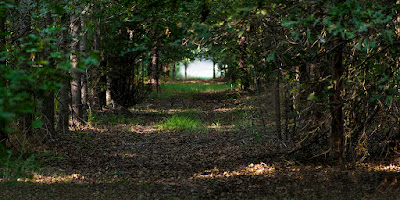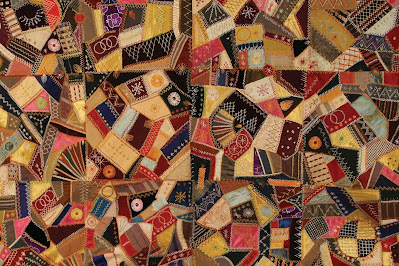Pentecost VIII, Christ Church, St. Joseph, La.
I’m pretty sure I’ve shared this story with you before, but it is so relevant again today that I can’t resist.
Every fall semester for years, I taught an advanced writing class to college Juniors. The first day of class I required students to complete a diagnostic writing exercise—in class. I gave them several topics to choose among, a time limit and an approximate word length, and set them to work.
One of my topics was “The Last Speech.” For “The Last Speech,” they were to imagine they had six months to live and to write the farewell speech they would give in the waning days of their life.
Young people write some interesting things when presented with that particular challenge. I’ll share a few examples with you in a moment.
But for the moment, let’s look at the assignment Jesus gives in today’s Gospel lesson. And the first thing I notice is that it is much tougher than the one I give my students. I give my students 6 months to get their affairs in order and define their legacy. Jesus says, “This very night…” This. Very. Night. You must account for what you have done with your life.
Goodness, Jesus, that’s harsh! I mean, what happened to the Jesus of love and mercy and endless second chances? It’s almost as though he is upset about something.
So let’s go back to the beginning of the passage to look for a clue. What instigates this rather harsh “this very night” verdict from Jesus?
Turns out it’s what must seem to us to be a rather mundane request from a guy in the crowd: “Jesus, please tell my brother to be fair to me.” And it sounds mundane to us because we ask Jesus for mundane stuff all the time: Please, Jesus, get me that job. Please, Jesus, help my business prosper. Please, Jesus, get me out of this trouble I’m in and I’ll be good forever, I promise.
What’s the harm in that, right? Isn’t that what Jesus is for? To do the hard things for us? To get other people to be nice to us, to hire us, to give us another chance, and on and on?
I fear way too much of our prayer time is focused on asking Jesus to fix everything that’s wrong in our lives and every challenge we face.
But, no. That is precisely NOT what Jesus is for! Jesus is not our fixer! Especially not when what needs to be “fixed” is another person or a situation “out there.”
Notice that the guy who kicks off the story does not ask Jesus to fix himself. He asks Jesus to fix his brother. And that is so classically human as to be simultaneously sad and amusing. Do you see yourself in that? I do. Isn’t it typically the case whenever humans come into conflict or disagreement or whatever, it is the other person who needs to be fixed?!
Jesus is not our fixer. He didn’t come to fix the people we think need fixing. He didn’t even come to fix us. What he came to do is show us a better way to be in the world, a kinder, more loving, more generous, more forgiving, more compassionate, more merciful—in short, a more-like-him way of being in the world.
Jesus came, and comes again and again to us in prayer and through the indwelling Holy Spirit, and the only “fix” he has to offer is “love God and your neighbor as yourself.”
Most of Jesus’ teaching then expands on what it means and what difference it makes when we actually put love—love for God and, consequently, love for all of humankind—at the center of our existence.
The story he tells on this occasion has to do with priorities and he criticizes the human tendency to prioritize accumulating stuff—earthly treasures, and typically more than we need.
There’s an online platform called “Statista” that can provide a statistical answer to all kinds of questions. So, last night I asked it about the worldwide distribution of wealth and here’s what it told me:
*75% of global wealth is in the hands of just 10% of the global population
*the bottom 50% of the global population owns just 2% of global wealth
As
Mahatma Ghandi once said, Earth provides enough to satisfy everyone's need,
but not everyone's greed.
Earlier I promised to return to my students and their assignment. Over the years, students have written some remarkable things that I have taken to heart and remembered.
One imagined himself at the age of 46 with many regrets but determined to not waste his remaining time. No more passing up opportunities, he wrote, I’m embracing everything from here on out. He had long wanted to travel to Australia; at 46 and under sentence of death, he was pricing plane tickets.
Another had clearly felt some real pain is his short years. He thanked his parents, reminding them that he had had to wear the ill-fitting hand-me-down clothes of his older brother, their “golden child,” but also that they had also always been there for him. And I love you, he says. After noting a couple of other great disappointments —one at the hands of his best friend and another handed to him by his country—he ends with one word: Peace. He has come to terms.
A third young man lived his life in a wheelchair, and his last speech is a statement of courage and defiance. My disability does not define me. I define it, he wrote. That is what I want to talk to you about tonight. Doing the best with what you have and never looking back.
Jesus ends the story he tells in today’s Gospel lesson by admonishing us that storing up treasures on earth is in vain. And he offers instead the notion of being rich toward God.
There’s a meme that makes the rounds every so often. I’ve seen several minor variations of it. My favorite depicts a large number of diverse people gathered around a big table laden with food. Think “church potluck” table. The caption says, “When you have more than you need, build a longer table, not a higher wall.”
I’m pretty sure that would count as being rich toward God.
“This very night,” Jesus says. What is each of us doing, today and every day, to be “rich toward God”? That’s the question.
In the name of God, Father, Son and Holy Spirit, Amen.










